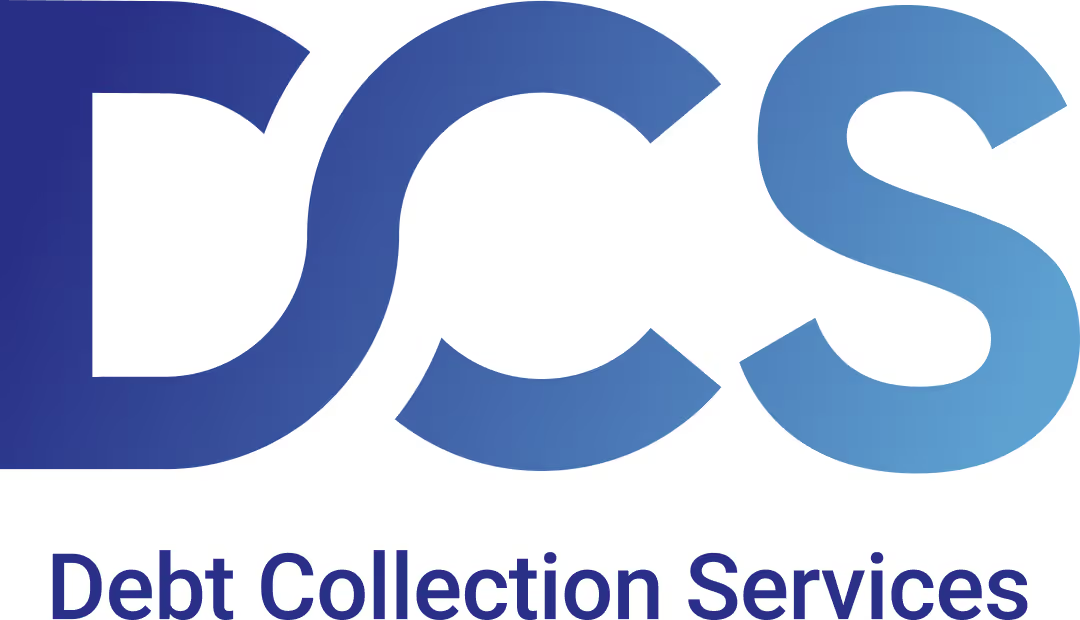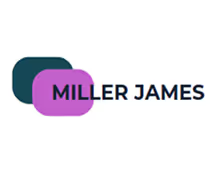Debt Collection Agency in the UK - No Win, No Fee
Your claims are handled exclusively by Miller James Limited, our FCA-authorised debt collection partner (debt recovery agency) with nearly 31 years of expertise.

Why Choose Debitura for Debt Collection in UK

Fast, simple and risk-free debt collection in the UK
Debitura connects you with Miller James Limited, a Belfast-based debt collection agency with nearly 31 years of experience and FCA authorisation (FRN 757723). As a Credit Services Association member, they combine regulatory compliance with proven recovery expertise.
- Risk-free: Pay only when we recover your money.
- Quick setup: Submit invoices in a few clicks.
- Real-time tracking: Monitor progress live in one portal.
- Local expertise: FCA-authorised professionals handle everything.

Getting started with UK debt collection
- Submit your claim: Upload your invoice via our dashboard, API, or ERP integration. Takes under 2 minutes.
- Partner takes action: Miller James Limited contacts your debtor within 24 hours using proven UK collection methods.
- Track and recover: Monitor real-time updates. Pay only when funds are collected - no upfront costs.
Already using NetSuite, SAP, or another ERP? Connect directly and automate the entire process.


Transparent, success-based pricing
Our No Win, No Fee model means you only pay when we successfully recover your debt.
- Zero upfront costs: No subscription, no setup fees, no hidden charges.
- Success-based: Your fee is a percentage of what we recover - nothing if we do not collect.
- Competitive rates: European rates apply to UK claims.
- Full transparency: See exact fees before you start.

Fast, simple and risk-free debt collection in the UK
Debitura connects you with Miller James Limited, a Belfast-based debt collection agency with nearly 31 years of experience and FCA authorisation (FRN 757723). As a Credit Services Association member, they combine regulatory compliance with proven recovery expertise.
- Risk-free: Pay only when we recover your money.
- Quick setup: Submit invoices in a few clicks.
- Real-time tracking: Monitor progress live in one portal.
- Local expertise: FCA-authorised professionals handle everything.
Debt collection process in UK - clear, fast and fully managed
Why you can trust this guide
At Debitura, we uphold the highest standards of impartiality and precision to bring you comprehensive guides on international debt collection. Our editorial team boasts over a decade of specialized experience in this domain.
Questions or feedback? Email us at contact@debitura.com — we update this guide based on your input.
Debitura By the Numbers:
- 10+ years focused on international debt collection
- 100+ local attorneys in our partner network
- $100M+ recovered for clients in the last 18 months
- 4.9/5 average rating from 621 reviews
Expert-led, locally validated
Written by Robin Tam (16 years in global B2B debt recovery). Every page is reviewed by top local attorneys to ensure legal accuracy and practical steps you can use.
Contributing local experts:
Last updated:
From first contact to final recovery, your UK debt collection follows a proven four-stage journey. Most commercial debts resolve during amicable collection (pre-legal recovery), with legal escalation available only if needed and always under your control.
- 70-85% of commercial debts resolve at the amicable stage (industry estimate)
- Typical amicable phase: 30-90 days
- Legal action available if debtor disputes or ignores
- Multiple enforcement routes: bailiffs, HCEOs, charging orders
Step 1: Claim submission and verification 📤
Miller James Limited reviews your documentation and confirms the debt is valid and enforceable under UK law.
- Upload invoices, contracts, and correspondence via the Debitura dashboard.
- Partner verifies the debt falls within the 6-year limitation period (Limitation Act 1980, Section 5).
- Confirm debtor details and any prior payment history.
UK contract claims must be filed within 6 years of the payment due date (Limitation Act 1980).
⏳ Duration: 1-2 business days
Step 2: Amicable collection (pre-legal recovery) 🤝
The partner contacts your debtor to negotiate payment without court involvement.
- Professional demand letters citing the Late Payment of Commercial Debts Act 1998.
- Phone calls and email follow-ups in line with FCA conduct rules (CONC 7).
- Negotiation of payment plans where appropriate.
- For B2B debts: statutory interest at Bank of England base rate + 8% (currently 11.75% per annum).
UK businesses can claim statutory compensation of GBP 40-100 per invoice under the Late Payment Act 1998.
⏳ Duration: 30-60 days typical
Step 3: Legal escalation (if required) 🏦
If the debtor disputes or ignores demands, Debitura sources fixed-price legal quotes.
- Claims up to GBP 99,999.99 can be filed via Money Claims Online (MCOL).
- Small Claims Track: up to GBP 10,000; Fast Track: GBP 10,001-25,000 (CPR Part 26).
- You receive 1-3 quotes from vetted UK solicitors - no obligation to proceed.
- Court fees range from GBP 35 (claims under GBP 300) to 5% (claims GBP 10,000-200,000).
Court fees for UK money claims range from GBP 35 to GBP 10,000 maximum (GOV.UK).
⏳ Duration: 2-6 months depending on track and defence
Step 4: Enforcement and recovery⚖️
With a County Court Judgment (CCJ), multiple enforcement options become available.
- Warrant of Control: County Court bailiffs seize goods (debts up to GBP 5,000).
- Writ of Control: High Court Enforcement Officers for debts over GBP 600.
- Charging Order: Secures the debt against the debtor's property.
- Third Party Debt Order: Freezes funds in the debtor's bank account.
- Attachment of Earnings: Deductions from debtor's wages (individuals only).
Judgments remain enforceable for 6 years; court permission required after this period (Limitation Act 1980, Section 24).
⏳ Duration: Varies by method - typically 2-8 weeks for bailiff action
Throughout this process, you maintain full visibility via the Debitura dashboard. Miller James Limited handles all communications and paperwork.
Source: Limitation Act 1980
UK debt collection fees - transparent and competitive
UK debt collection fees vary widely, but agencies commonly charge up to 25% on commercial claims. Debitura offers competitive European rates with complete fee transparency and no hidden costs.
- No upfront fees - you only pay on successful recovery
- European rates apply: 6-20% depending on claim value
- Optional legal action with fixed-price quotes (no obligation)
- Partner invoices in GBP; fee thresholds calculated in USD
Pre-legal collection fees
Our success-based fees are calculated on the amount recovered. All thresholds are expressed in USD, as Debitura calculates fees at the time of collection regardless of claim currency.
- Claims USD 100 to USD 999: 20%
- Claims USD 1,000 to USD 149,999: 9.5%
- Claims above USD 150,000: 6%
European rates apply to UK claims.
Optional legal action
If your debtor disputes the claim or refuses to pay, you can request legal escalation. Debitura sources 1-3 fixed-price quotes from vetted UK solicitors. You review the offers, decide whether to proceed, and have no obligation to accept.
- Court fees recoverable from debtor if judgment obtained
- Solicitor fees quoted upfront - no surprises
- You approve all costs before any legal action begins
- Enforcement costs (bailiffs, HCEOs) also quoted separately
Miller James Limited handles invoicing in GBP. The success fee is deducted at collection, and remaining funds are transferred to you.
See full pricing at debitura.com/pricing
Who we help with debt collection in UK
Late payment remains a persistent challenge for UK businesses, with the average B2B payment taking over 40 days past terms. Miller James Limited helps creditors of all sizes recover what they are owed - whether the debtor is a UK company or an international business with UK assets.
Small and medium enterprises
- Chasing UK customers who have stopped responding
- Need professional collection without hiring in-house staff
- Want zero risk - pay only on successful recovery
Ideal for: Manufacturers, wholesalers, service providers, and freelancers with outstanding UK invoices.
Enterprises and multinationals
- Centralise UK debt recovery alongside other markets
- API and ERP integration for automated claim submission
- Consolidated reporting across all jurisdictions
Ideal for: Finance teams, credit controllers, and treasury departments managing high-volume receivables.
International creditors
- Recover debts from UK-based companies without local presence
- Native English communication and UK legal expertise
- Enforcement via HCEOs and County Court bailiffs
Ideal for: EU exporters, US suppliers, and Asian manufacturers selling to UK buyers.
Our UK and international expertise 🌍
Debitura operates in 183 countries through a network of 500+ vetted local partners. In the UK, Miller James Limited serves as your exclusive pre-legal collection partner - an FCA-authorised agency with nearly 31 years of experience and Credit Services Association membership. Whether your debtor is in London, Belfast, or Edinburgh, local expertise ensures faster resolution. Need to collect across borders? The same dashboard connects you to partners across Europe, the Americas, Asia, and Africa - one contract, one platform, consistent results.
Start Recovering Your International Debts Now →
Tech-enabled debt collection in UK - ERP, API, AI and secure integrations
Managing receivables across multiple systems and countries creates friction and delays. Debitura provides a single platform connecting your finance tools to Miller James Limited and 500+ partners worldwide:
- ERP integration: Connect NetSuite, SAP, Microsoft Dynamics, and other systems for automatic claim submission.
- API access: Build custom workflows and sync case data directly with your internal tools.
- Zapier and Make: No-code automation to trigger collections from your existing stack.
- AI-powered prioritisation: Intelligent scoring helps focus efforts on the most recoverable claims.
- Bank-grade security: Encrypted data transfer, GDPR-ready infrastructure.
- Credit checks: Assess debtor solvency before deciding on legal escalation.
Find a Local Debt Collection Lawyer
Need court-ready representation? Share your case once and receive up to three proposals from vetted litigation attorneys—free, fast, and with no commitment.
- Verified specialists
- Quotes in 24 h, no hidden fees
- Fair, pre-negotiated rates

Premium Collections Group Limited is a premier debt recovery agency in Timperley, Altrincham, offering effective Debt Collection services in the United Kingdom, founded in 2002, operating on a "no collection, no fee" basis, and backed by 55 global partners.

OneLaw Chambers is a premier law firm in London offering effective Debt Collection services in the United Kingdom, established in 2019, renowned for winning the Most Trusted Immigration & Civil Litigation Firm 2023 award, and a member of the Solicitors Regulation Authority.

STUDIO LEGALE - LAW FIRM NIEDDU is a premier law firm in Alghero offering effective Debt Collection services in Italy, positioning itself as the go-to partner with over 26 years of experience, serving clients in 183 countries, and providing 24/7 support.

Safe Collections Ltd is a premier debt recovery agency in Leyland offering effective Debt Collection services in the United Kingdom, founded in 1984, operating on a no-collection, no-commission basis, and serving clients globally with a 4.9/5 Trustpilot rating.

Taurus Collections is a premier debt recovery agency in the UK offering effective risk-free Debt Collection services, established in 2010, with a no win, no fee model, serving clients worldwide, and is an exclusive Debitura partner, adhering to Debitura's risk-free standard terms and pricing.

Debt Collection Service Limited is a premier debt recovery agency in Bristol offering effective debt collection services in the United Kingdom, established in 2005, providing cost-effective solutions with memberships in the Federation of Small Businesses and the Information Commissioner’s Office.

Slater Byrne Recoveries is a premier debt recovery agency in Manchester offering effective Debt Collection services in the United Kingdom, operating since 2008 with a "No Win, No Fee" model, over 500 client reviews, and memberships in the IMA and International Trade Council.

Debt Collection Services UK Ltd is a premier debt recovery agency in Wakefield offering effective Debt Collection services in the United Kingdom, founded in 2003, operating on a no-win, no-fee basis, and accredited by the FCA and Credit Services Association.

Credit Limits International Ltd is a premier debt recovery agency in Faversham offering effective Debt Collection services in the UK, renowned for its ethical no-win no-fee model, founded in 2009, and a proud member of the TCM Group serving 135 countries.

Hariharan and Hariharan (UK) Law Offices LLP is a premier law firm in London offering effective Debt Collection services in the United Kingdom, positioning itself as the go-to partner for debt recovery with a foundation in 2023, an hourly rate of USD 650, and memberships in The Legal500 and Advocates for International Development, serving clients across the UK, India, and the European Union.

Miller James Limited is a premier debt recovery agency in the United Kingdom offering effective risk-free Debt Collection services, recognized as the go-to partner since 1995 and an exclusive Debitura partner in Northern Ireland, providing No Cure No Pay solutions under Debitura's risk-free standard terms and pricing, with memberships in the Credit Services Association and Financial Conduct Authority, serving both Northern Ireland and the Republic of Ireland.

Oriel Collections Limited is a premier debt recovery agency in Cheltenham offering effective Debt Collection services in the United Kingdom, established in 2003, regulated by the FCA, and awarded the CSA Merit Award for Working with Vulnerable Customers, serving clients globally.





.svg)

.webp)
.png)

.png)
.svg)












.svg)

